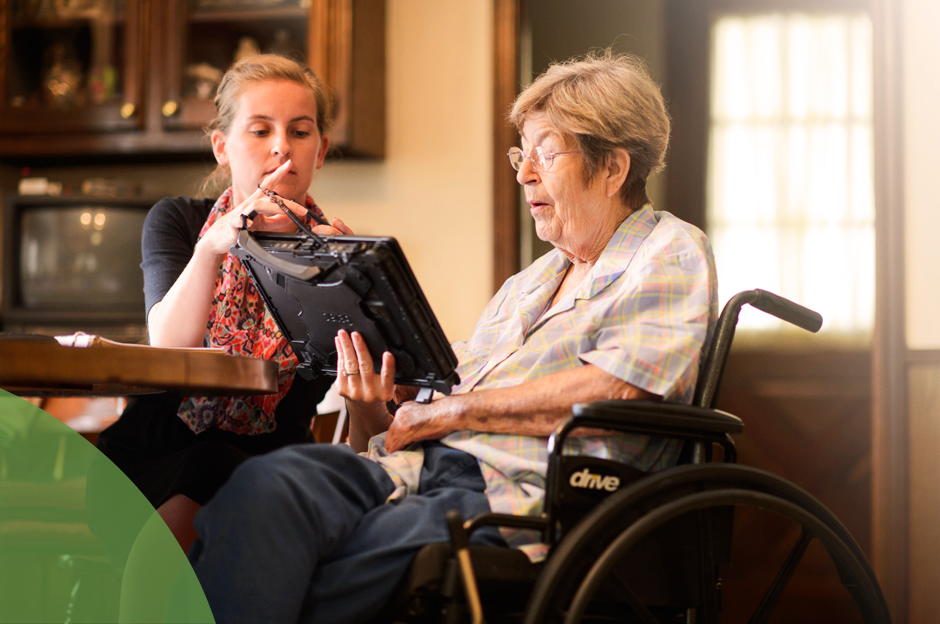
May is Better Speech and Hearing Month, and Amedisys is proud to celebrate the incredible speech therapists who contribute to our tradition of excellent, clinically distinct care in the home.
By preventing, assessing, diagnosing and treating speech disorders—including language, communication, cognitive and swallowing disorders, speech therapy is an essential component to the home health model of care.
Often times, patients experience an inability to talk and communicate, difficulty swallowing or poor memory and disorientation. To address these issues, speech therapy focuses on the following areas.
COMMUNICATION
Communication disorders affect daily tasks like talking on the phone, communicating with family members or physicians or even calling 911 in an emergency. Aphasia, dysarthria and general weakness can contribute to communication difficulties.
Speech therapists develop verbal and nonverbal communication systems that include pictures or icons to allow patients to communicate effectively. Clinicians will also educate using oral motor and breathing exercises, compensatory strategies and education to family members as well.
COGNITIVE
Memory loss and disorientation can often result from a diagnosis of Alzheimer’s disease, dementia or general cognitive impairments. Sometimes, medication side effects or even dehydration can contribute to these deficits.
To help patients with cognitive impairments, speech therapists develop programs with structured memory tasks, problem solving, reasoning, visual and auditory aids, calendars and family education.
SWALLOWING
Dysphagia, or difficulty swallowing, is a common diagnosis in home health patients. This can cause weight loss, aspiration (food or liquid entering the airway) and aspiration pneumonia, which is a very serious condition.
To combat these risks, speech therapists help patients modify their diets, educate on safe swallow strategies, practice oral motor and pharyngeal exercises and complete Modified Barium Swallow Studies.
Leave a Reply